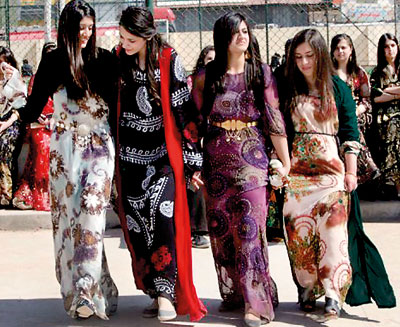Sunday Times 2
Adultery laws unfairly target women: UN
UNITED NATIONS, Oct 24 2012 (IPS) – When one of the Asian countries embraced Islamic Sharia law back in the 1990s, the rigidly conservative government threatened to enforce a provision that called for convicted adulterers to be stoned to death.
“If this law is enforced,” a weekly magazine cynically pronounced at that time, “the country will run out of stones.”

Many penal codes do not treat women and men equally and establish harsher sanctions for women. UN Photo/Eric Kanalstein
Cynicism apart, the controversial issue, mostly with religious overtones, surfaced last week when a group of U.N. human rights experts weighed in with its own perspectives on adultery.
The four-member Geneva-based group urged member states to repeal laws criminalising adultery which have resulted in punishments ranging from the imposition of fines to flogging, hanging and death by stoning.
“Adultery must not be classified as a criminal offence at all”, said Kamala Chandrakirana, who currently heads the U.N. expert body charged with identifying ways to eliminate laws that discriminate against women or are discriminatory to them in terms of implementation or impact.
Asked if this practice is common mostly in Muslim countries, Yasmeen Hassan, global director at the New York-based Equality Now, told IPS that adultery is an issue for all major religions, not just Islam, and there are laws against it still in certain US states.
According to one published report, there are at least 18 states in the US, including Colorado, Florida, Arizona, Michigan and Illinois, where adultery is considered illegal.
“The issue here is not of criminalisation of adultery per se but the use of so-called Sharia laws on fornication and adultery to oppress and intimidate women and to uphold patriarchal and misogynistic social systems,” said Hassan.
“From my study of Islamic jurisprudence, I know that the punishments for fornication and adultery were historically to be applied very cautiously and only in cases of extremely wanton acts of near-public fornication (i.e., where Muslim men of good repute had actually witnessed the act) or when the person who committed the act admitted to it three times, with time to reflect on the admission, and change their story,” she told IPS.
In a statement released here, the group of experts warned that maintaining adultery as a criminal offence – even when it applies to both women and men – means in practice that women mainly will continue to face extreme vulnerabilities, and violation of their human rights to dignity, privacy and equality, given continuing discrimination and inequalities faced by women.
Chandrakirana was quoted as saying the criminalisation of sexual relations between consenting adults is a violation of their right to privacy and infringement of the International Covenant on Civil and Political Rights, as established almost two decades ago by international human rights jurisprudence.
The experts point out that in accordance with some traditions, customs and different legal systems, adultery may constitute a civil offence with legal consequences in divorce cases, in respect of the custody of children or the denial of alimony, amongst others.
However, it should not be a criminal offence and must not be punishable by fine, imprisonment, flogging, or death by stoning or hanging, such as in the many countries where adultery continues to carry severe penalties.
The experts also said that provisions in penal codes often do not treat women and men equally and establish harsher sanctions for women, and in some countries, rules of evidence value a woman’s testimony as half that of a man’s.
Hassan told IPS the way these laws have been applied by all Islamic countries that have them on the books (and not all do) is to punish and terrorise women who are suspected of transgressing social mores.
She said they have also been used to get rid of women who were inconvenient – for example, for purposes of inheritance, if the husband wanted to re-marry and did not have permission of the first wife – or to get revenge on a particular woman or her family.
“Strikingly, these laws have not, to my knowledge, ever been applied to the elite in these societies, which also makes their implementation discriminatory on the basis of class,” said Hassan.
Many women’s groups which are working within the Islamic framework, she said, would agree with getting rid of these laws, or at the very least, ensuring that they are not implemented in the manner in which they currently are being used.
“I feel strongly that religious and cultural arguments – that I think can be extremely fluid and flexible when they need – should not be used to justify adherence to principles of inequality and discrimination,” Hassan noted.
In their statement, the experts also cited several examples where some countries have remedied this violation of women’s rights.
A 1996 decision of the Guatemalan Constitutional Court struck down the penal code’s punishment of marital infidelity or adultery on the basis both of the constitution’s equality guarantees and human rights treaties, including the Convention on the Elimination of All Forms of Discrimination against Women (CEDAW).Similarly, in 2007, the Ugandan Constitutional Court overturned the adultery law that penalised women for adultery while leaving their male partners unpunished.
Follow @timesonlinelk

























